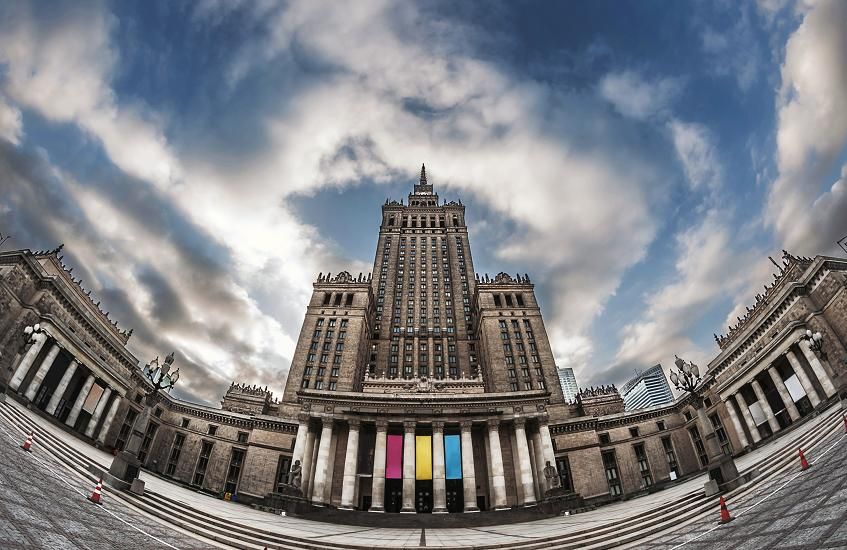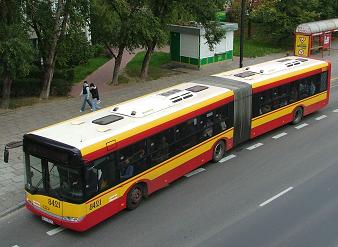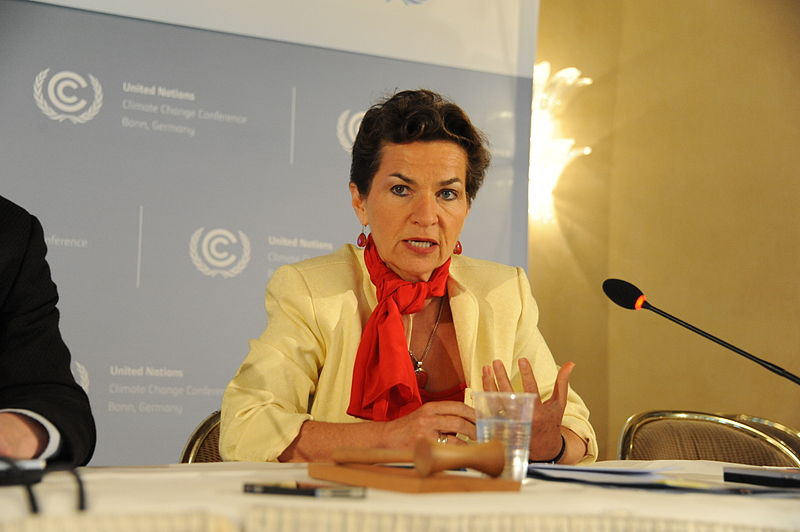COP19 and sustainability in Warsaw
Despite the decision to prolong the Kyoto Protocol until 2020, the negotiating parties assembled for COP19 are facing a number of challenges. The City of Warsaw, as host, is committed to playing a positive, constructive role in the discussions, and has begun a number of wide-ranging initiatives to bring about a sustainable future.

The City of Warsaw has the privilege of hosting the 19th Conference of the Parties of the United Nations Framework Convention on Climate Change – COP19. It is a further demonstration of our commitment to the Convention and its contribution in advancing the urgent fight against global climate change.
In the agenda of the COP summit there are discussions on controlling the implementation of the Convention’s resolutions regarding environmental and climate policy on a regional and global level. The main objective hereremains reducing the greenhouse effect and consequences of climate change. Poland has already hosted the climate summit once – COP14 in Poznań in 2008. However, COP19 has achieved great importance, both diplomatically and logistically.
One of the main issues is steering the joint efforts of the parties involved, including the world’s biggest economies, towards active reduction of greenhouse gases. The remaining challenges embrace such issues as adaptation to climate change, technology transfer and the financing of pro-climate actions, which is of particular importance for developing countries. During the COP19 summit, Poland will have to make every effort to contribute to work in progress on a new, legally binding global agreement to be introduced in 2015, which would replace the currently existing Kyoto Protocol beyond 2020.
During COP19 it is also planned to make a decision on adopting an official international mechanism to help countries affected by loss and damage due to climate change, in particular islands.
Working for a green city
Since 2007, we in Warsaw have been concentrating seriously on new ideas and projects in the field of sustainable development that can achieve the goal of making our city genuinely ‘green’ – even though Warsaw is already one of the greenest large cities in Europe, with forests, parks and arable lands covering almost half of its area. In addition, we are the only European metropolis adjacent to a national park, the Kampinos Park.
.jpg) Yet there is still a lot to achieve, particularly in the field of energy efficiency in all activity sectors. All our sustainability-related actions, in addition to other benefits like creation of new jobs in innovative sectors, must contribute to achieving our fundamental goals, which are: decreasing CO2 emissions, reduction of energy consumption, and limitation of associated costs. As a result of this approach, in 2009 Warsaw joined the Covenant of Mayors, a widely-known initiative associating European local governments acting on rational management of energy and limiting climate change. Following this, work started on an action plan for sustainability in Warsaw.
Yet there is still a lot to achieve, particularly in the field of energy efficiency in all activity sectors. All our sustainability-related actions, in addition to other benefits like creation of new jobs in innovative sectors, must contribute to achieving our fundamental goals, which are: decreasing CO2 emissions, reduction of energy consumption, and limitation of associated costs. As a result of this approach, in 2009 Warsaw joined the Covenant of Mayors, a widely-known initiative associating European local governments acting on rational management of energy and limiting climate change. Following this, work started on an action plan for sustainability in Warsaw.
On 8 September 2011, the Council of Warsaw adopted the Sustainable Energy Action Plan for Warsaw(SEAP), looking forward to 2020. It is the first document of this magnitude that presents an integrated approach to energy management at the level of Warsaw local government.
A dedicated monitoring system was created for SEAP purposes: all relevant departments, units and agencies (including also some key external companies) submit progress reports to the Infrastructure Department of Warsaw City Hall. The first report on the implementation of SEAP will cover the years 2011-2012; this is currently under preparation and will be delivered to the Covenant of Mayors Office at the end of 2013.
Sustainability initiatives
Some of our more important initiatives are mentioned below. These are designed to help us to achieve our sustainability goals in the field of energy and climate in the near future:
A Low Carbon Area: We took a decision in March 2011 to start a work on creating a Low Carbon Area within the city borders. This area will include comprehensive solutions to support energy efficiency, protect 
The E-Mobil Cluster: Warsaw partners have created the ‘E-Mobil’ Cluster, focusing on environmentally-friendly transport, including electric and hybrid vehicles. It is a joint initiative of partners from the science and research sector, local government, associations and companies (including car and energy companies) working in the wider Warsaw area. The E-Mobil partners are committed to creating a platform to initiate the development of innovative technologies, demonstration projects and implementation tools. These would support the widespread implementation of hybrid and eventually purely electric vehicles, capable of exchanging surplus energy with a specifically designed ‘smart’ electric grid, using information technology to manage energy flows.
Solid waste incineration: Modernisation and extension of the existing municipal ZUSOK solid waste incineration plant will give the city a major boost as an additional source of electric energy and network heat. Moreover, there are plans for another such plant, to be constructed probably by a private investor cooperating with the City. Both waste incineration investments combined will lead to solid waste satisfying 8 per cent of our energy demand: it means that more than 75 per cent of Warsaw’s municipal waste will be dealt with by incineration.
Adoption of renewables: The EU project Cities on Power works on triggering the application of renewable energy by public and private investors in urban areas through developing and endorsing joint renewable energy strategy and local action plans, and providing an interactive IT toolbox with maps of solar and geothermal potential. These will allow citizens to estimate how much energy they could derive from solar panels and heat pumps installed in their household, and when their investment would pay off. The Local Action Plan for Warsaw, to be delivered in 2014, will describe in detail how to reach the goal of the Warsaw SEAP of a 20 per cent share for renewable energy sources. It will also give Warsaw a proposal on new, more ambitious renewable energy goals for 2030.
Retrofitting: The City of Warsaw envisages launching in 2014 a thermal retrofit project for about 20 schools in public-private partnership, recovering investment costs from energy savings (Energy Performance Contracting or EPC), even though PPP/EPC is still a relative novelty in Poland. Already in 2013 a project with this formula has been started on the modernisation of street lighting, which will finally cover as many as 30,000 lamps. When completed, the plan will allow a saving of about 57 per cent of energy costs in modernised lamps, reducing CO2 emissions by 20,000 tonnes per year. Subsequent, larger projects to the described formula are planned for the near future, including thermal retrofits of municipal school buildings.
ELENA financing: Warsaw is also the first Polish municipality to submit an application to the ELENA financial instrument. The EU assistance from this source will help to cover costs related to preparing and launching Warsaw projects on both thermal retrofits of around 60 municipal buildings, modernisation of indoor lighting and modernisation of street lighting. Implementation of all these projects will vastly improve energy efficiency in the city and decrease energy-associated costs.
Information and dissemination
Information and dissemination activities are major elements in the implementation of SEAP. The effort to spread climate awareness dates back to 2007. In addition to the everyday work – such as disseminating information and tips on saving energy for City employees – larger-scale activities are organised within the framework of dedicated events focusing on climate and environmental protection. These events are organised on either international, national or local level, often with external partners. The partners cooperating with Warsaw in this field on a permanent basis are grouped in the platform Partnership for Climate, which is coordinated by the City of Warsaw.
Among other awareness events it is worth mentioning Picnic with Climate (within the Partnership for Climate); Warsaw Recycling Days; Earth Hour in Warsaw (together with the WWF); Tree Day (together with the NGO Klub Gaja); Car-Free Day (within European Mobility Week); and Letters for Earth (together with the NGO ARKA).
In 2013, the City of Warsaw’s climate-oriented information and dissemination events have concentrated on the build-up to COP19.
International leadership
Warsaw has a place as a leader in the field of energy and climate not only in Poland, but among metropolises of the whole region of the Central and Eastern Europe. It is also attracting the attention of external partners: for instance during the ‘Eco-City’ contest organised in 2013 by the French Embassy in Poland, Warsaw received awards in the categories of pro-environmental construction and sustainable mobility, in competition with the other major Polish cities.
Warsaw is spreading climate awareness and exchanging related knowledge and best practicies among other cities
Also recently published, the Integrated Sustainability Report – compliant to the newest version of the world’s predominant standard, the G4 guidelines of the Global Reporting Initiative– confirmsthehigh standing of Warsaw with regard to sustainability. We are as well one of the few cities from our continent which participate in the European Commission’s High Level Group, contributing to the development and implementation of the European Innovation Partnership on Smart Cities and Communities.
Warsaw is accordingly spreading climate awareness and exchanging related knowledge and best practicies among other cities both in Poland and abroad, using our membership in organisations such as C40 Large Cities Climate Leadership Group, EUROCITIES (currently with Warsaw as president), Association of Polish Cities (ZMP) or the Polish branch of Energy Cities (PNEC). Another measure used for this purpose has been the EUCASCADE project on local energy leadership.
An international showcase
The COP19 summit will be a great opportunity to present the City of Warsaw’s activities on energy efficiency, and increasing the use of renewable energy sources. COP19 sessions will be attended by environment ministers from all over the world, senior representatives of the United Nations and representatives of the European Commission. There will also be a set of side-events, including the Green Climate Exhibition in the Palace of Culture and Science (pictured top right), displaying modern solutions and technologies that are friendly for both climate and environment.
In turn by the close of this summit we are offering an opportunity to discuss our cities’ role in climate change policy during meetings dedicated to this subject within the framework of a Warsaw Dialogue on  Scaling-Up Local and Subnational Climate Action. The Dialogue, organised in close collaboration with the global cities network ICLEIand supported by the UNFCCC Secretariat, will be held in Warsaw from 20 to 21 November. The City of Warsaw will initiate the debate among the representatives of cities, and also between them and governments, to allow the cities’ voice to be heard and duly taken into account in the multilateral climate process.
Scaling-Up Local and Subnational Climate Action. The Dialogue, organised in close collaboration with the global cities network ICLEIand supported by the UNFCCC Secretariat, will be held in Warsaw from 20 to 21 November. The City of Warsaw will initiate the debate among the representatives of cities, and also between them and governments, to allow the cities’ voice to be heard and duly taken into account in the multilateral climate process.
We believe that cities and their organisations worldwide have a crucial role in tackling the climate challenge, and should support national governments in the formulation and implementation of climate policies on greenhouse gas emission reduction and adaptation. Therefore, the Dialogue will provide the participants with the opportunity to have an open exchange on addressing climate change on various levels, sharing experience and best practices. The Warsaw Dialogue’s agenda on 20 November will include a roundtable discussion on the subjects of energy efficiency of buildings and cities’ infrastructure, waste management, transport systems and adaptation to climate change.
For the first time in history of COP conferences there will be a dedicated Cities Day, constituting a part of the official agenda, on 21 November. This will include the High Level Meeting at the National Stadium with participation of UNFCCC Executive Secretary Mrs Christiana Figueres (pictured right), Polish Minister for Environment Mr Marcin Korolec and other representatives of national governments, followed by a press conference. This will be a wonderful opportunity to make the joint cities’ voice heard by the most important decision-makers from the whole world. Hence the City of Warsaw plans to reinforce and disseminate our climate-related message contained in the Nantes Declaration from this September, in cooperation with our city partners and in dialogue with the governments: all on behalf of the welfare of our citizens, the natural environment and the climate.








